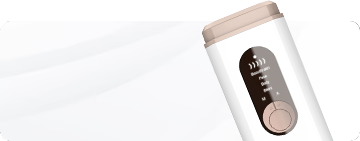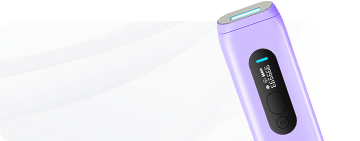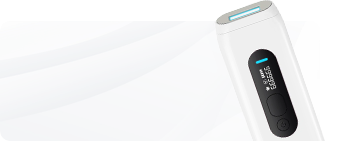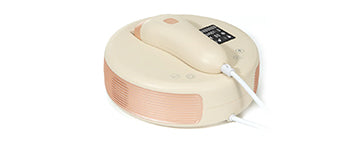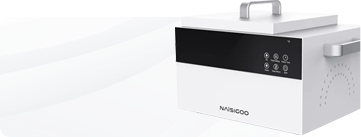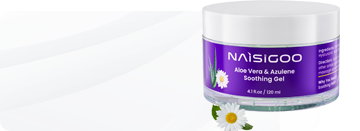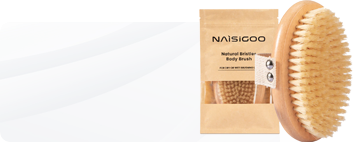If you're considering switching from traditional hair removal methods like waxing to something more advanced, you might consider IPL (Intense Pulsed Light) or laser treatments. Both are effective at stopping hair regrowth and can be used on those tricky areas, but each has pros and cons.
IPL devices are less expensive and have fewer side effects, making them a great home-use choice. However, they may take longer to show results and might not work for all skin and hair types. On the other hand, professional laser treatments are faster but more expensive and require visits to a clinic.
In this blog, we'll break down everything you need to know about IPL and laser hair removal to help you decide which one is better for your skin and hair type. Let’s explore these options further to help you make the best choice for smooth, hair-free skin.
Technology
Both laser and IPL (Intense Pulsed Light) hair removal aims to reduce and potentially eliminate unwanted hair by targeting the melanin in hair follicles with light. While they share the same goal, they differ in the type of light used and their suitability for home use.
Laser hair removal employs a medical-grade laser that emits a single, focused beam of light to target hair follicles precisely. This method is typically performed in professional settings due to its intensity and precision.
On the other hand, IPL devices use a broad-spectrum light that is less focused but still effective. This makes IPL devices gentler and more suitable for at-home use, offering a convenient alternative to professional laser treatments. Many people find IPL effective enough for long-term hair reduction on various skin types.
IPL technology isn't just for hair removal; it's also used in dermatological practices to promote collagen production, help rejuvenate skin, reduce scarring, lessen the appearance of vascular lesions, and even diminish wrinkles.
Cost
At-home IPL treatments like using the NAISIGOO The Shiner are much more affordable than professional laser hair removal sessions. How much is laser hair removal? Salon treatments can cost anywhere from $80 to $800 per session, and you might need up to 12 sessions to obtain the desired outcomes.
The major cost advantage of IPL is that you pay a one-time fee for the device, which allows you to conduct as many sessions as you need at home. This eliminates additional costs such as travel expenses or time off work.
For example, purchasing the NAISIGOO The Shiner for $269.96 outright is still considerably less expensive than the total cost of multiple salon sessions needed for similar results. This makes IPL a cost-effective and convenient option for long-term hair removal.
Comfort
Both laser and IPL hair removal offer less painful alternatives to traditional methods like waxing, which involve pulling hair from the root. These technologies are designed to be safer and gentler on sensitive skin. Laser hair removal often uses anesthetics to minimize discomfort, creating a sensation that some liken to a rubber band snapping against the skin. Meanwhile, IPL devices come with built-in technologies that reduce pain, making the process more comfortable.
Most users find IPL treatments to be pain-free, reporting little to no discomfort, especially when done at home. This makes IPL a particularly appealing option for those looking to manage hair removal in the comfort of their own space.
The convenience of using IPL devices at home, without the discomfort typically associated with other hair removal methods, adds simplicity to your beauty routine. Whether it’s IPL or laser, both are effective, with IPL not causing more discomfort than laser treatments.
Results
Laser hair removal and IPL (Intense Pulsed Light) are popular methods for reducing and removing unwanted hair, offering substantial long-term results. The number of required sessions can vary from 3 to 12, depending on the treatment area, your hormonal balance, and the rate of hair growth. Typically, laser treatments initially require 4 to 6 sessions, with additional maintenance sessions every few months to keep your skin smooth.
For IPL treatments, plan on attending sessions twice weekly for 6 to 8 weeks to see similar effects. With IPL hair removal devices like the NAISIGOO The Shiner, you can achieve up to a 97.82% reduction in hair regrowth after 12 sessions, resulting in long-lasting, nearly hair-free skin.
Both laser and IPL treatments allow for an immediate return to daily activities, as no downtime is required. While severe side effects like blistering and discoloration are uncommon, mild inflammation or skin irritation may occur. In such cases, applying a soothing agent like NAISIGOO Aloe Vera Gel can alleviate discomfort in sensitive areas.
Suitable Candidates
Laser hair removal and IPL (Intense Pulsed Light) treatments are most effective when there's a distinct contrast between your skin tone and hair color. That's why these methods aren’t suitable for people with very dark skin or very light hair—the devices need to clearly see the hair to target it effectively.
At NAISIGOO, we don’t recommend IPL for those with deeply pigmented dark brown to darkest brown, black skin because the device can't effectively distinguish the hair from the skin.
However, for those with darker skin, some laser treatments use longer wavelengths that may work but also come with a higher risk of darkening the skin, known as hyperpigmentation.
Effective, Safe, Comfy Hair Removal At-Home
Whether it's during your morning routine or while enjoying some breakfast for dinner, at-home IPL treatments offer a cost-effective, convenient alternative to professional laser hair removal sessions. With the same effectiveness from the comfort of your own home, NAISIGOO The Shiner includes a unique 90+90-day money-back guarantee. Not satisfied? We'll refund you.
Give it a try today. Looking for testimonials? Check us out on Facebook.


